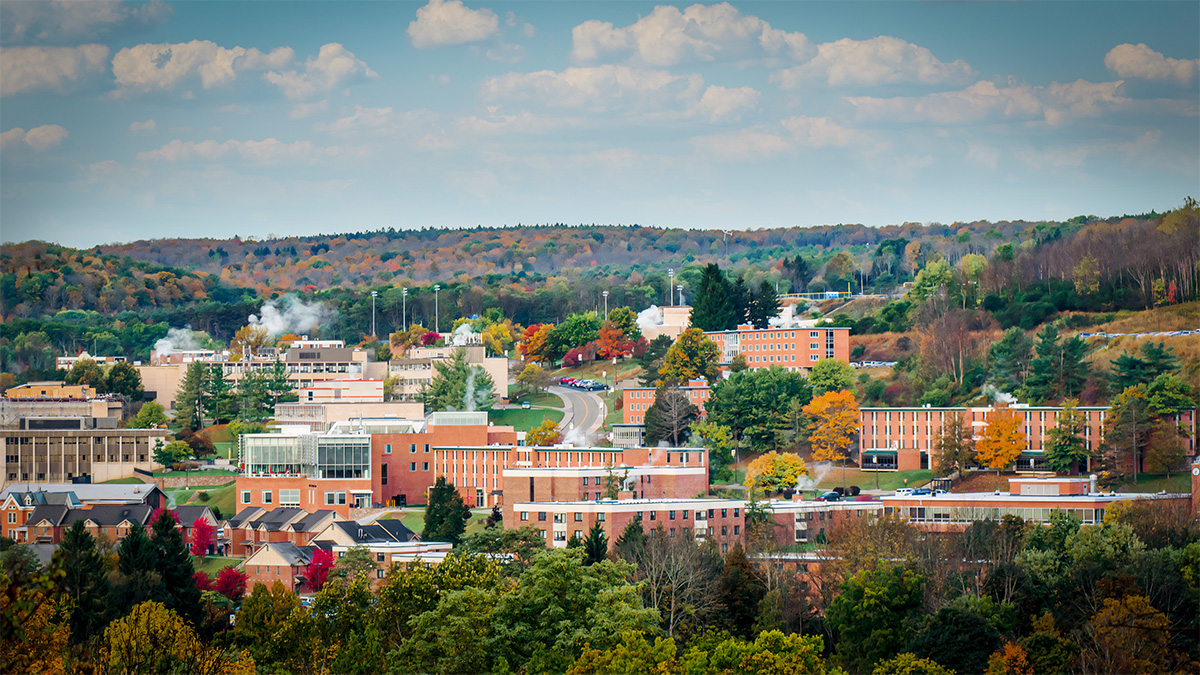
At a glance
Alfred University and Alfred State are co-sponsoring a two-day visit to the community and campuses by scholar/lecturer Dr. Donald B. Kraybill, internationally recognized for his work on Anabaptist (radical movement of the 16th-century Reformation that viewed baptism solely as an external witness to a believer's conscious profession of faith, rejected infant baptism, and believed in the separation of church from state, the shunning of non-believers, and in simplicity of life) groups.

Alfred University and Alfred State are co-sponsoring a two-day visit to the community and campuses by scholar/lecturer Dr. Donald B. Kraybill, internationally recognized for his work on Anabaptist (radical movement of the 16th-century Reformation that viewed baptism solely as an external witness to a believer's conscious profession of faith, rejected infant baptism, and believed in the separation of church from state, the shunning of non-believers, and in simplicity of life) groups. The Amish, Hutterites, and Mennonites are direct descendants of the movement.
On Monday, April 15, at 6:30 p.m. in Alfred Village Hall, Kraybill will present “Amish Grace: Why the Amish Forgave the Killer at Nickel Mines.” The event is free and open to the public.
Kraybill is the author or editor of many books including “How Forgiveness Transcended Tragedy,” which focuses on the Amish response to the mass-murder of children at Nickel Mines School, Lancaster County, PA in the fall of 2006. His speech will touch on the power of forgiveness, its value in our lives, and reflect on the Amish understanding of this concept.
Alfred University’s Barnes & Noble Bookstore will have Kraybill’s book available for sale at Village Hall and Kraybill will sign copies following the program. The AU Bookstore will also have books available on campus.
Kraybill’s Alfred visit is sponsored Alfred University’s colleges of Liberal Arts and Sciences and Professional Studies, and the Division of Student Affairs, and Alfred State College’s Center for Civic Engagement, Kaleidoscope, and Office for Multi-Cultural Affairs. The event is part of Alfred State’s President’s Interfaith and Community Service Challenge, an initiative inviting campuses to engage in interfaith education, cooperation, and community service programming on campus over the course of one year.
Earlier in the day, from noon to 5 p.m., Alfred University’s Drawn to Diversity program will sponsor “Forgiveness Stations” of desks and notebooks throughout the campus. Those interested may stop, reflect, and anonymously write notes of forgiveness to those that have done harm, whether emotionally or physically.
On Tuesday, April 16, Kraybill will speak in two of Jill Amati’s Social Problems classes at Alfred State. His topic will be “The Whisker War: Why Ex-Amish Beard Cutters Were Charged with Federal Hate Crimes,” an analysis of the reasons behind the Amish related beard cuttings in Ohio and why the jury found the offenders guilty of federal hate crimes. Kraybill was an expert cultural witness aiding the prosecution.
Prior to Kraybill’s visit, a documentary titled “The Power of Forgiveness” will be screened on Wednesday, April 10 at 6 p.m. at EJ Brown Hall 119 on the Alfred State campus. The film, which includes stories and interviews with Kraybill, explores recent research into the psychological and physical effects of forgiveness on individuals and society. This event is also open to the public free of charge.
Kraybill is a senior fellow at the Young Center for Anabaptist and Pietist Studies at Elizabethtown College in Elizabethtown, PA. He is the author and editor of a number of books and professional articles on the Amish and other Anabaptist groups. He is also the series editor of Young Center Books in Anabaptist and Pietist Studies published by the Johns Hopkins University Press. This spring Johns Hopkins University Press will release “The Amish” by Kraybill, Karen M. Johnson-Weiner, and Steven M. Nolt.
